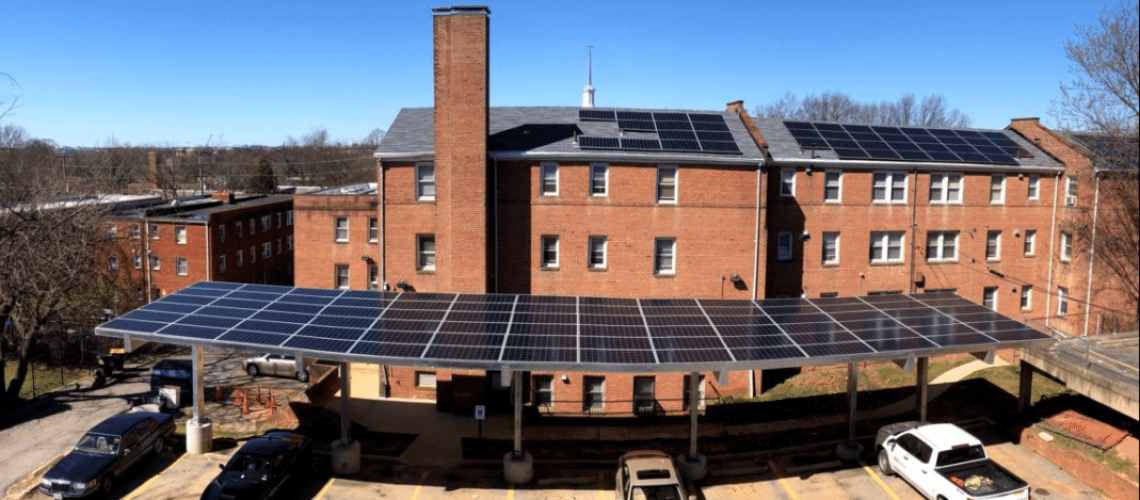Coalition of advocates urged PUC to address racial and wealth disparities in bill affordability, and they continue to push for more progress.
Minnesota’s Governor Walz recently signed into law a new climate bill that aims for 100% clean energy by 2040. The state enacted its first net metering law in 1983. In 2013 it became the first state to establish a community solar law. In 2007 it set its renewable portfolio standard (RPS).
While the Governor has been working to advance clean energy in the state, Xcel Energy, a utility that’s headquartered in Minneapolis and provides energy to millions of residents in eight Western and Midwestern states, filed a rate increase proposal in October 2021 that was criticized by clean energy, environmental and social justice advocates. They noted that it comes at a time when Minnesotans are feeling the strain of inflation and the rising cost of living. Over 500 concerned ratepayers pushed back against the proposed rate hike by attending public hearings and submitting written comments.
The new Minnesota climate bill encourages utilities to take energy justice into account, and the Minnesota Public Utilities Commission (PUC) found that energy justice is relevant to Xcel’s ratemaking process and the PUC just released a decision in Xcel Energy’s electric rate proposal that has energy justice provisions.
Some of the provisions include lowering Xcel’s proposed return on equity from the company’s requested 10.2% to 9.25%, a rejection of proposed investments that would have stalled local clean energy growth. The proposal also rejects Xcel’s request that ratepayers foot the bill for excessive executive compensation.
The Just Solar Coalition, which includes Community Power, Cooperative Energy Futures, Minnesota Interfaith Power and Light, and Vote Solar–represented by the Environmental Law and Policy Center–urged the PUC to address racial and wealth disparities in bill affordability. One impetus behind this work is the so-called “Minnesota Paradox,” a term coined by University of Minnesota Professor Samuel L. Myers. He noted that “African Americans are worse off in Minnesota than they are in virtually every other state in the nation,” and explained that while Minnesota may be the best state to live in, it is the worst state for people of color, hence the paradox.
A recent report from the Energy Information Administration (EIA) found that U.S. residents that need the most support on their energy bills are stuck with costs 27% higher than their neighbors on square-foot-basis. The report said EIA said that energy-insecure households have reduced or forgone basic necessities to pay energy bills, kept their houses at unsafe temperatures because of energy cost concerns, or been unable to repair heating or cooling equipment because of cost.
According to Vote Solar, a low-income household in Minnesota can expect to spend 8% of their income on utilities, four times the average for a non-low-income household. These disparities are especially harmful to customers of color, who are likely to face the highest energy burdens, while also being excluded from programs designed to save energy costs and build wealth.
“A key function of the state utility commission is to ensure that the utility rates are just and reasonable. Today, they seized upon an important opportunity to do that—and they clearly recognized the relevance of Energy Justice within the ratemaking process,” says Erica McConnell, staff attorney with the Environmental Law & Policy Center, who represented the Just Solar Coalition. “However, it was troubling to see the Commission move some critical issues out of the rate case and into other forums with less accountability and fewer financial repercussions for the utility.”
While the Just Solar Coalition advocated for mandate on increased procedural justice and public participation utility regulation, such mandates were excluded from the order.
“True energy equity requires that the most impacted stakeholders are empowered to participate fully in these critical decision-making processes,” said Jenna Warmuth, Midwest regional director at Vote Solar. “I’m proud that our coalition was able to make room at the table for groups that have been historically and systematically excluded. Unfortunately, the PUC failed to implement solutions that would have advanced public participation and access.”
Read also 50 states of solar incentives: Minnesota.



